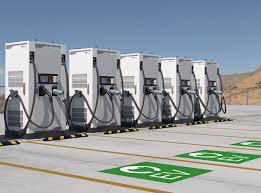I’ve been thinking over this the last few days, and I do not see a situation where ev charging will ever be profitable enough for businesses to install them at large. I assume most public charging is DC fast charging so I’m talking about that.
Where do you put a charger so that is receives the most amount of use? Well that’s easy, wherever gas stations currently are—but that’s where the problems start. How many chargers do you install, and at what charging speed?

The theoretical max amount of money you can make in an hour is the charging speed x price/kW. So for a 100kW charger at 50¢/kW you’re hard capped at $50/hr. I found a 240kW DC charger on aliexpress for $44,000. Using the 50¢/kW from above it’d take 36 days to break even, assuming 24/7 usage at the theoretical maximum. With a normal usage of around 6 hours total (i’m just throwing numbers out there) that jumps to 146 days. After 10 years of operating you’re looking at around $1.2 million or a 2727% return
However, the time to break even grows and the return shrinks with the amount of chargers installed. And this is without factoring in installation costs and the power companies electricity price, which could easily cut that down to a fourth. I also do not see a charger going 10 years without a single repair.
I’m just wondering if i’m missing something here.


There’s a fundamental flaw in your premise. If we envision a world where everything is EVs, very little of it will be DCFC. Instead, level 2 chargers will be everywhere. Think of what you see in parking garages, except much more of it. Your car spends almost all of its life parked. You also (probably) rarely drive more in a day than the battery can hold.
Level 2 chargers are simple and low maintenance. They also end up being cheaper for everyone involved. These are already very profitable ventures, but they don’t exist much at dedicated charging locations. Instead, they are and will be at places that people park for extended periods.
DCFC will mostly be along freeways for longer trips, and a limited number within a city for things like delivery drivers.